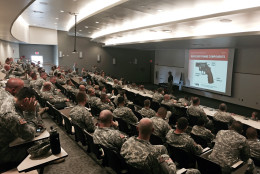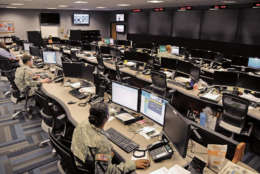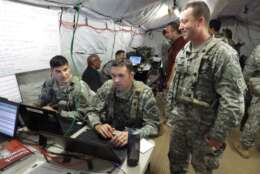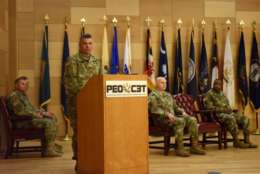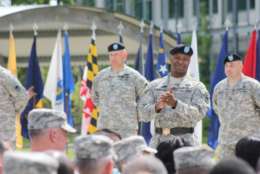Army
-
The Army has launched a four-month project to create a new "modernization command," and plans to have it fully functional by next summer.
October 10, 2017 -
The National Guard is looking to commanders to deal with burdensome training requirements.
October 09, 2017 -
Army is trying to figure how to persuade cyber soldiers to re-enlist rather than take expertise to private sector.
October 06, 2017 -
In today's Federal Newscast, after the Trump administration sent up 27 new nominations, it announced it was withdrawing two previous ones.
October 03, 2017 -
The Defense Department is making some changes to meet its readiness challenges, but it needs more support from Congress and civilian government.
September 29, 2017 -
The Army says the outcome of two studies shows the need to "pivot" to a new strategy for its tactical network.
September 28, 2017 -
The Army Corps of Engineers was part of the all-of-government response to Hurricanes Harvey and Irma.
September 20, 2017 -
The Uniformed Services University of the Health Services and West Virginia University are teaming up to take on opioid addiction.
September 19, 2017 -
The Army is just a few weeks into what’s likely to be one of the largest tactical IT upgrades in its recent history.
September 14, 2017 -
The Warrior Transition Battalion at Madigan Army Medical Center in Washington State has added diving with sharks to its list of coping skills to teach wounded soldiers
September 13, 2017 -
The U.S. Army is making plans to complete an upgrade project in two years that was estimated to take five, according to Col. Troy Crosby
September 13, 2017 -
The Army Cyber Center of Excellence became fully operational on Aug. 9 and published in April its first doctrine for how it fights in cyberspace to include electronic warfare.
August 28, 2017 -
After almost nine months of no news, GSA asked vendors bidding on the Alliant 2 GWAC to guarantee their bids through Dec. 31.
August 21, 2017 -
The Army's RCO plans to deploy new electronic warfare systems in Europe, then Korea. A more reliable version of GPS is next on its list.
August 18, 2017 -
The Army's new CIO says an ongoing top-level review of communications systems isn't just about battlefield IT.
August 16, 2017


